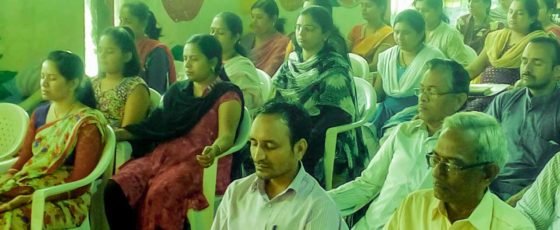INTRODUCTION
WHAT IS MENTAL WELLNESS?
Wellness is a relatively new paradigm in health care, and the subject of mental wellness is newer still. The study of characteristics that make up mental health is called positive psychology, which was introduced only in 1998. Mental wellness in counseling and therapy is even more recent, being introduced in 2001.
Mental wellness is more than a pop psychology term, it is a part of the future of medicine, which is moving daily toward a concept of holistic treatment.


According to the World Health Organization, mental wellness is defined as “A state of well-being in which the individual realizes his or her own abilities, can cope with the normal stresses of life, can work productively and fruitfully, and is able to make a contribution to his or her community.”
The definition of mental wellness defined by Dr. Jane Myers of the University of North Carolina, one of the founders of the concept, She says,
“Wellness refers to a holistic approach in which mind, body, and sprit are integrated. It is a way of life oriented toward optimal health and well-being in which body,mind,and sprit are integrated in a purposeful manner with a goal of living life more fully…Wellness is more than the absence of disease, [or] a state defined as “health”[it] incorporates a concern for optimal functioning.
The following list was compiled by Dr. Myers as a general guide to what it is to live in wellness. These are essential areas of concern along life’s way and not an absolute checklist that measures success or failure. You may not even agree with them all. Choose the ones you want to aspire to and make them your milestones along the mental wellness continuum.

MOST OF THE POINTS BELOW DEAL WITH MENTAL HEALTH AND WELLNESS IN SOME WAY
Coping Self
Satisfaction with your time spent in leisure. Feeling that your skills are used appropriately.
On-going self- assessment of your coping resources. The ability to organize and manage resources such as time, energy, and setting limits.
Accepting who and what you are, positive qualities along with imperfections. A sense of being genuine within yourself and with others.
Ability to process information and perceive reality accurately. The absence of persistent irrational beliefs and thoughts and need for perception.
Creative Self
Being mentally active and open-minded. The ability to be creative and experimental. Having a sense of curiosity. The ability to apply problem-solving strategies to social conflicts.
Being aware of or in touch with your feelings. The ability to express appropriately positive and negative feelings.
Beliefs about your competence, confidence, and personal mastery. Belief that you can usually achieve the goals you set out for yourself.
Satisfaction with your work. Feeling that your skills are used appropriately. Feeling you can manage one’s workload. Feeling a sense of job security. Feeling appreciated in the work you do.
Being able to laugh at your own mistakes. The ability to use humour to accomplish even serious tasks.
Essential Self
Personal beliefs and behaviours practiced as part of the recognition that we are more than the material aspects of mind and body. Belief in a higher power. Hope and optimism. Practice of worship, prayer, and/or meditation, purpose in life. Compassion for others. Moral values. Transcendence(a sense of oneness with the universe)
Satisfaction with and feeling supported in one’s gender. Ability to be androgynous.
Satisfaction with and feeling supported in one’s cultural identity. Cultural assimilation.
Taking responsibility for one’s wellness through self-care and safety habits that are preventive in nature.
Social Self
Social relationships that involve a connection with others individually or in community, but which do not have a marital, sexual, or familial commitment. Having a capacity to trust others. Having empathy for others. Feeling understood by others.
The ability to be intimate, trusting, self-disclosing with another. The ability to give as well as express affection with significant others and to accept others without conditions.
Physical Self
